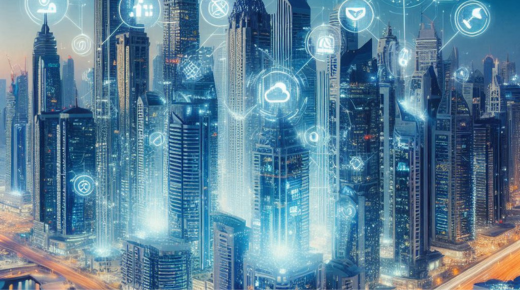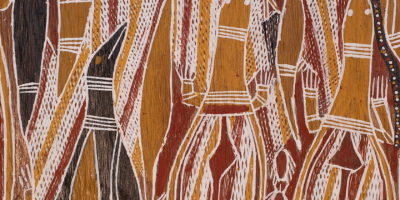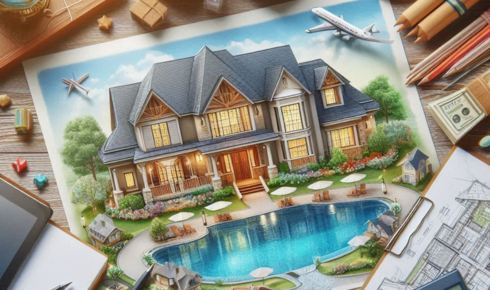By Dr. Pooyan Ghamari, Swiss Economist
Dubai, a global metropolis known for its iconic skyline and dynamic real estate market, is undergoing a profound transformation powered by emerging technologies. From blockchain-driven property transactions to the rise of artificial intelligence in urban development, technology is not only changing the way properties are bought and sold but also how cities are built and lived in. As Dubai positions itself as a global leader in innovation, its real estate market is increasingly becoming a hub for tech-driven advancements.
In this article, we explore the key technological trends that are shaping Dubai’s real estate landscape, creating new opportunities for investors, developers, and residents.
1. Blockchain: Revolutionizing the Real Estate Transaction Process
Blockchain technology has made a major impact on Dubai’s real estate market by offering enhanced transparency, security, and efficiency in property transactions. Traditionally, real estate transactions have involved multiple intermediaries such as brokers, legal consultants, and banks. These layers not only increased costs but also slowed down the transaction process.
Dubai has embraced blockchain as a means of simplifying and securing property transactions. The Dubai Land Department (DLD) has been a pioneer in integrating blockchain technology into its operations, enabling the secure digital transfer of property ownership. Blockchain creates a decentralized ledger where property records are stored in an immutable and transparent format, ensuring that the transaction process is secure and fraud-proof.
As Dr. Pooyan Ghamari, a Swiss economist, notes, “Blockchain is revolutionizing the real estate sector by eliminating intermediaries and providing a transparent platform for property transactions. This increases investor confidence, particularly for foreign buyers, and paves the way for more efficient and secure cross-border transactions.”
2. Smart Cities: The Intersection of Technology and Sustainability
Dubai’s ambitious plans to become a fully integrated smart city are well underway. At the heart of this transformation is the integration of Internet of Things (IoT) technology, which allows buildings and infrastructure to be interconnected and monitored in real-time. Smart buildings in Dubai are equipped with sensors that control lighting, temperature, and energy usage, making them more efficient and environmentally friendly.
The goal of creating a smart city is not only to improve the efficiency of urban systems but also to enhance the quality of life for residents. Smart homes enable residents to manage their living environments via mobile apps, adjusting everything from security settings to energy consumption. This contributes to a more sustainable urban ecosystem, aligning with Dubai’s larger goals of reducing its carbon footprint.
“Smart city technologies are a crucial part of the future of urban living,” says Dr. Ghamari. “By creating interconnected, energy-efficient spaces, Dubai is setting a global benchmark for sustainable real estate development. This integration of technology and sustainability adds long-term value to the property market.”
3. Artificial Intelligence and Big Data: Shaping Real Estate Investments
Artificial Intelligence (AI) and Big Data are playing pivotal roles in optimizing real estate investment strategies in Dubai. AI-powered algorithms can process vast amounts of data to provide investors with actionable insights. From predicting market trends to identifying investment opportunities, AI is helping investors make data-driven decisions with greater accuracy.
AI also personalizes the property search experience. For instance, potential buyers and tenants can receive tailored recommendations based on their preferences, budgets, and historical search data. This not only enhances the customer experience but also speeds up the transaction process.
Big Data, on the other hand, is enabling developers to better understand consumer behavior and market dynamics. By analyzing patterns in buying habits, economic conditions, and property performance, developers can design projects that align with market demand, ultimately improving profitability and sustainability.
Dr. Ghamari highlights, “The integration of AI and Big Data in real estate is allowing for more precise market analysis and investment strategies. This is particularly beneficial in a city like Dubai, where real estate trends can shift rapidly.”
4. Virtual and Augmented Reality: Transforming Property Showcasing
Virtual Reality (VR) and Augmented Reality (AR) technologies have become indispensable tools in Dubai’s real estate market. These technologies allow potential buyers to experience properties remotely, offering immersive virtual tours that replicate the physical environment of a property.
For international investors, VR and AR provide a unique opportunity to explore properties without the need to travel to Dubai. This technology is particularly valuable in the luxury real estate segment, where buyers want to visualize the intricate details of high-end properties before making a purchase decision. Additionally, AR can enhance the experience by allowing buyers to visualize potential renovations or interior design changes, providing them with a clearer vision of their investment.
“Virtual Reality and Augmented Reality are revolutionizing property showcasing,” says Dr. Pooyan Ghamari. “These technologies enable investors from around the world to access Dubai’s real estate market more easily, offering a more engaging and detailed property viewing experience.”
5. PropTech Platforms: Redefining Real Estate Transactions
Dubai’s real estate sector is increasingly benefiting from PropTech (property technology) platforms, which are making property transactions more streamlined and accessible. These platforms leverage blockchain, AI, and data analytics to provide investors with end-to-end solutions for buying, selling, and managing properties.
PropTech solutions are particularly appealing to global investors who seek transparency and efficiency. Through digital platforms, buyers can browse property listings, conduct virtual tours, complete legal transactions, and even manage their real estate portfolios—all from a single interface. Blockchain-backed PropTech platforms also offer secure, real-time transactions, further enhancing investor confidence.
6. 3D Printing: The Future of Real Estate Construction
Dubai is known for pushing the boundaries of construction technology, and 3D printing is no exception. The city is already home to the world’s first 3D-printed office building, and the local government has set ambitious targets for expanding the use of 3D printing in real estate construction. By 2030, Dubai aims for 25% of new buildings to be constructed using 3D printing technology.
3D printing offers numerous benefits, including reduced construction time and costs. The technology also allows for more sustainable construction practices by minimizing material waste. With its precision and speed, 3D printing enables developers to build more complex and customizable structures that meet modern architectural standards.
“The use of 3D printing in real estate construction is a game-changer,” Dr. Ghamari observes. “It not only reduces costs and improves efficiency but also opens up new possibilities for architectural innovation. Dubai is leading the world in adopting this technology, and the real estate sector stands to benefit immensely.”
Conclusion: A Technological Future for Dubai’s Real Estate Market
As technology continues to advance, Dubai’s real estate market is evolving into a highly innovative, efficient, and sustainable ecosystem. Blockchain, AI, VR, and 3D printing are just a few examples of the technologies driving this transformation. These innovations are not only improving the way properties are bought, sold, and managed but are also enhancing the overall investment environment for both local and international stakeholders.
This article was originally published on a.land. For more information and opportunities, visit shop.a.land.




